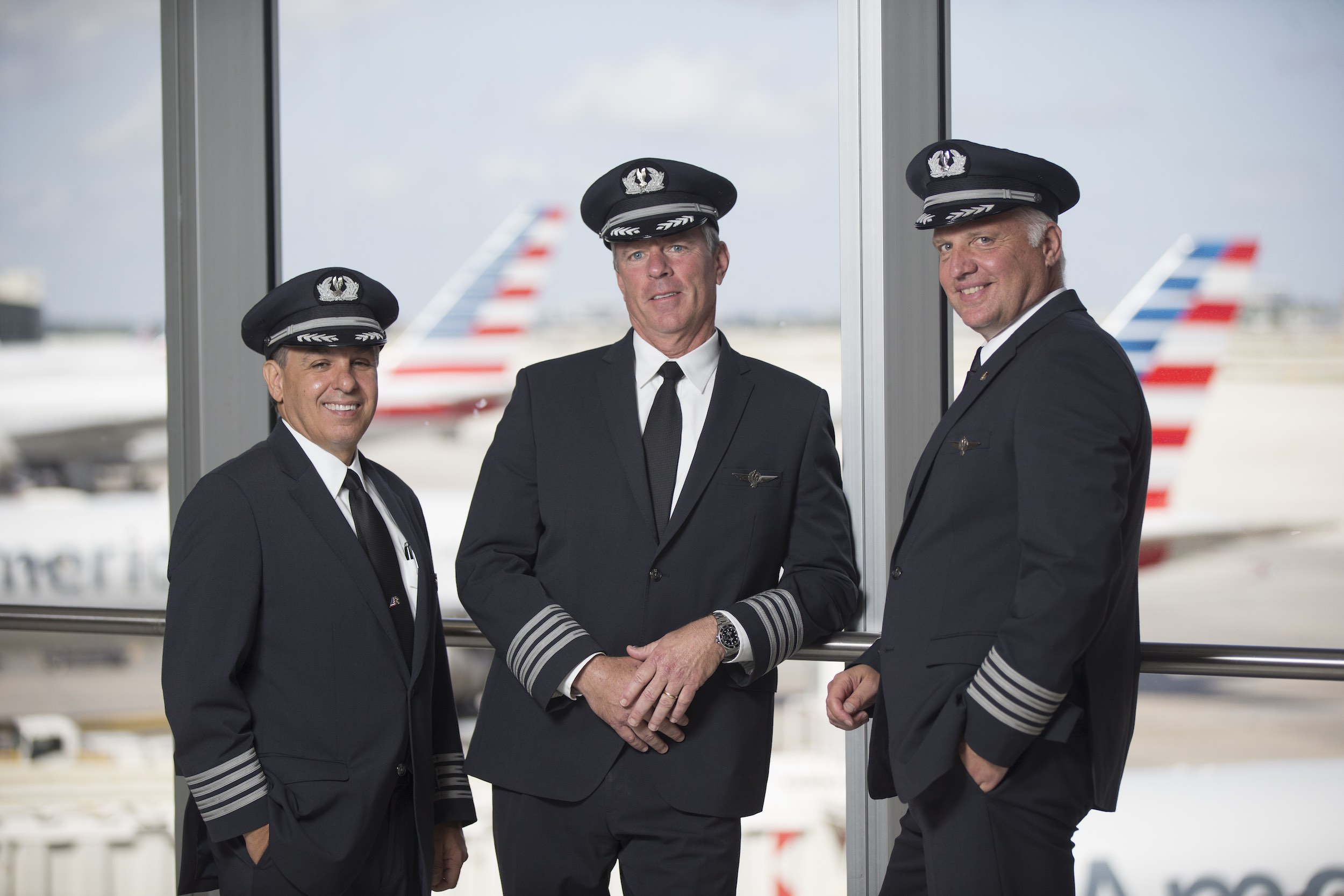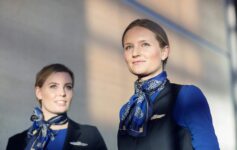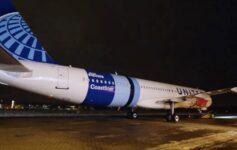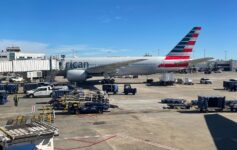
With one fell swoop, American Airlines CEO Robert Isom has bypassed the union and offered pilots at American a lucrative deal that matches Delta Air Lines and could see senior widebody captains earning up to $590,000 per year. Is this obscene compensation or simply a sign of the times?
Pay Up: American Airlines Offers Pilots Up To $590K/Year In New Compensation Package
Fact. There is a pilot shortage. Fact. Delta pilots just negotiated a lucrative contract, which becomes a barometer for the entire industry in the USA. Fact. Pilots at American Airlines have not seen a pay raise in years.
So it is any wonder that American Airlines now appears ready to grant pilots a compensation package that includes not only a generous pay bump but all sorts of other fringe benefits (as flagged by insider JonNYC)?
— 🇺🇦 JonNYC 🇺🇦 (@xJonNYC) March 8, 2023
We’d be wise to reserve full judgment until we understand all the details. Compensation is but one component of the package. Details on profit sharing, sick leave, vacation, 401(k), and healthcare will have to be ironed out.
But from Isom’s note to pilots above, it does seem like American Airlines wants to quickly get a deal done and move on.
Isn’t it interesting that Isom sent this internal memo (likely knowing it would quickly be made public) that bypasses unions and seeks to rally pilots directly?
Will it work? I’d love to hear from pilots in the comment section below.
Is This Obscene Pay?
Pilots are professionals and they are entrusted not only to safely operate multi-million dollar equipment but also entrusted with the lives of hundreds of passengers onboard.
As such, they should be paid well for their job.
And in a world in which CEO pay is near an all-time high in terms of the disparity between the C-Suite and rank-and-file workers, perhaps our ire, if appropriate at all, should be directed there instead.
But I do have to wonder if this pay is sustainable. Will it lead to higher ticket prices? Will it fuel the economy-wide inflation problem? Is there something obscene about a pilot making more than most doctors or lawyers?
I guess I’m not the only one who is musing over that issue, but in a way, it is the wrong question to ask. Right now there is a shortage of pilots due, in part, to the high cost of training and 1,500 minimum flight hour rule imposed by the FAA with the full blessing and backing of the unions seeking to keep the pilot club as exclusive as possible.
Flight attendants will not see pay raises remotely equivalent to those of pilots because historically it is more difficult to become a flight attendant for a US carrier than to get into Harvard or Yale. There’s a huge demand for these jobs and even as carriers go on a hiring spree, there will be no problem finding entry-level flight attendants.
Pilots are different. It takes exponentially more training to become a pilot and the current pay rates reflect that reality. But I really have to wonder if these pay rates are sustainable. What happens when hundreds of young people start gravitating toward flight school and suddenly the supply of pilots exceeds demand? Will everything be renegotiated next time there is a recession?
As a customer, it is right for me to be concerned about my ticket prices and whether services will be cut back to balance the new higher labor costs?
CONCLUSION
First, I offer my congratulations to the pilots at American Airlines for the generous offer from CEO Isom. Even noting that details concerning other working conditions must be hashed out, the immediate (and retroactive) pay raise is a big deal. I don’t necessarily agree that the proposed new contract is “obscene” but I do seriously wonder what it will mean for consumer airline prices and what will happen when times get bad.
image: American Airlines




I said this over on Lucky’s blog, but it makes sense to me that airline pilots are paid in the same category as doctors, lawyers given the specialized training required for the job, as well as the importance of the role in the overall economy. And it would be a great thing if more doctors / lawyers / young people decided they wanted to become pilots instead of doing something mundane like law, consulting or the majority of other careers pencil pushers like I do.
Now all we have to do is figure out how to pay teachers more…
How much do the IT staff get? Southwest staff (any IT staff really…) probably feel wildly underappreciated these last few years.
Exactly, it’s a snowball. Once they start doling out pay raises like this to some employees everyone will come clamoring for more. IT staff isn’t less important than pilots, or mechanics for that matter.
Enjoy it while you can!! During the next recession, Uncle Sam will not come to the rescue and pilots will be falling off the roster like flies.
Having worked in payroll and with union employees in the past, the “last hired, first fired” clause will kick in. Those at the bottom of the pecking order (and lowest wage scale) are hurt the most, while those with seniority (and highest wages) stick around.
I have found those in the highest order are the least prepared for an exit of any kind. They are under the impression that the cash would continue to flow; are the deepest in debt; credit cards maxed out; and not a dime in a 401k plan.
I think it’s much less obscene than the CEOs making $10 million plus
Personally, I’m a fan of this. Given how much no-strings-attached funding went to airlines in 2020, the least they can do is put in place pay raises since there really isn’t much more room or availability for capex on aircraft. Where the airlines are getting smart is in junior hiring through academies. That will mitigate some of the effect of higher wages. Either way, good on ALPA for short term win.
For a less than full-time job, this is an obscene amount of compensation. Military pilots (who put their lives on the line for all of us) of the same age and experience make 1/5 this amount, and they work full-time.
But then military pilots are not directly responsible for the lives and safety 200-300 civilians in a single flight? And that’s every time they fly, even in peace time. Also, maybe top military pilots can also easily transition to airliner duty.
Still, I don’t know if $590k is too much, and I don’t know what the realistic threshold is to make it to that pay tier.
It depends on the military flight (and mission). They could be responsible for 1000’s of lives on a specific flight at a specific time.
It’s obscene because it’s not sustainable, and customers will be double-paying for it through higher fares and their tax dollars when American and Delta go begging for more government bailouts, It’s well past time to let one of these heinously run airlines fail. The rest will figure out how to actually run an airline if there is a real chance their lousy decisions, like this one, won’t be propped up by the public.
I’m curious what everyone who thinks this is obscene thinks is appropriate compensation for a captain at the top end
Good question William. I’m also curious- although the number is eye- popping for most, it is at the “top end” as you say.
To better get a sense of “fair” we probably have to know not just the top end, but the realistic actual distribution of pay from top to bottom.
I also think about the analogy to doctors, although most doctors make less than this kind of money. One question for those of us unfamiliar- what kind of schooling and how many years of training (presumably making “peanuts”) before getting this top pay? How would that compare to medical training?
This doesn’t exactly answer your questions but it gives some context.
CNBC: An agreement could include 21% pay increases in the first year of the contract, Isom said. Factoring in higher 401(k) contributions by the end of a four-year deal, a captain flying narrow-body planes would make $475,000 at the top of the scale, up $135,000 from current pay, while the most senior captains of wide-body planes would make $590,000 per year, a $170,000 increase from today. Isom also vowed better scheduling and “more certainty” on when pilots would fly. Pilots across the industry have complained about frequent schedule changes during airlines’ rocky path to rebuilding networks to meet high travel demand.
BLS: Federal regulations set the maximum work hours and minimum requirements for rest between flights for most pilots. Airline pilots fly an average of 75 hours per month and work an additional 150 hours per month [unpaid] performing other duties, such as checking weather conditions and preparing flight plans. —
Here are some rough estimates from the current pay scale, which don’t include per diem or 401k contributions, and are an average based upon 75 flight hours per month, and flying a 737:
First Officer Year 1: $81,000/year
First Officer Year 7: $160,200/year
First Officer Year 12: $171,000/year
Captain Year 1: $229,500/year
Captain Year 7: $241,200/year
Captain Year 12: $250,200/year
flying a 787:
First Officer Year 1: $81,000/year
First Officer Year 7: $197,100/year
First Officer Year 12: $210,600/year
Captain Year 1: $282,600/year
Captain Year 7: $296,100/year
Captain Year 12: $307,800/year
https://www.airlinepilotcentral.com/airlines/legacy/american_airlines
I don’t find the current numbers to be staggering by any means. While the increases sound large, it seems a good deal of that must be 401k contributions.
Combined 401k contributions for employer and employee are capped at $66k for 2023, this isn’t specific to pilots, it’s law for any 401k. Assuming that they were getting some contributions before, it’s hard to see how the 401k increase can make up a huge amount in this situation.
Thanks for the info. Looks like the max 401k contribution on the old payscale would be approx $50k when topped out.
I do find the limit is higher for 2023 though for some:
This limit does not apply to “Catch up” contributions resulting in a maximum 2023 “Total Contribution” limit of $73,500 for pilots age 50 or older (vs. $67,500 for 2022).
I have no problem with airline pilots being paid this much. They provide value, their job is high pressure, however automated it might be and become, and they have lives in their hands. I don’t want my pilot to be bitter about their paycheck.
That said, you do have to spare a thought for, say, the research scientist who is a certified genius, gets a top school PhD, and works in a lab trying to break new ground, the kind of which enables airlines to exist – all to get paid about 25% of what a pilot who left school and went straight into pilot training eventually receives.
The world definitely doesn’t seem fair sometimes!
(for the record, I’m not a pilot, and nobody’s giving me a PhD, and I can only dream of making half of what’s mentioned in the article)
I agree, if certainly doesn’t seem fair sometimes. One of my kids graduated from a prestigious university and is a scientist at a bio-lab, and earns less than the US worker average. But, then again, they’d probably wouldn’t take a job in an unrelated field even if it paid $1M.
Hopefully she’s not doing gain of function
There’s just too much money in the economy (thank you Fed) and this is just one sign of the wage-price spiral that’s upon us especially in union jobs. I can see flight attendants making 100k soon and still not being able to afford much
Many FA’s make over $100k flying high time already
It’s basically a supply and demand issue.
true, next few years are seemingly retirement heavy, as well, for AA. Mandatory Retirements (Based on pilots turning 65 in the given year):
2023 – 828
2024 – 911
2025 – 941
2026 – 904
2027 – 772
2028 – 688
2029 – 647
2030 – 568
2031 – 584
2032 – 523
2033 – 498
2034 – 435
I’m a major airline captain and I think it’s necessary to put a few things into perspective. First, not every pilot at the majors will be making these kinds of salaries…only the most senior (and even then, they will have to be flying fairly busy schedules). It still takes about thirty years from getting hired at a major to achieve the rank of widebody Captain, and many pilots will never have the seniority to do so…only the top 1/4-1/3. This is not taking into account the ten or so years it takes working jobs that barely pay enough to make ends meet to just make it to a major airline. Not to mention the sacrifices our military pilot colleagues make to get here.
There are few jobs out there that require you to put your career on the line every few months with checkrides, medicals, line checks, etc. A major airline captain assumes a billion dollar liability for his or her airline each time that pilot signs for the jet on every flight. Not too many other jobs incur that kind of risk to the corporation on behalf of an individual employee. It’s like the old story of a baseball player with a .4 batting average…not too many achieved that kind of success. Same holds true for the lawyer who wins 7/10 cases or the doctor who is successful in 8/10 surgeries…those are very high rates of success in those chosen professions, but who would want to fly with the airline pilot who is successful on 99% of his/her flights? Not many. This profession requires a 100% success rate on every flight. And no, these jets don’t “just fly themselves, while we sit back and push buttons.” We are paid to land the jet in that 30 knot crosswind, avoid those thunderstorms, get safely stopped on that icy runway, make the tough decisions, handle emergencies, etc…none of which can be done by a computer.
I understand the concern of whether or not this will raise ticket prices, but on an average ticket, it’s less than twenty dollars per passenger that goes to pilot salaries….some flights more, some less, but my point is that it’s not the major element of the cost of one’s ticket. Fuel is. Sure, ticket prices may go up by a few dollars, but it won’t be much…current inflationary rates will have more of a noticeable impact.
I also appreciate the fact that a lot of people will see this as being unfair and that other professions should be compensated on par with these salaries. It would be nice if they were, but I have no control over that. In the US, salaries tend to reflect the training required and liability to the corporation.
I’ll explain it via an analogy: When I go to an opera, I pay $100/ticket and I think the performer gets $2000 for that night, say, which is good money. But it’s really awful money because he didn’t just “work” that evening but rehearsed for weeks before opening day and it took him years of training to reach that level. In addition, many opera stars never make it having “wasted” (sort of) years trying to make it, but can’t. It’s a similar paradigm to sports and entertainment (which are both kind of the same thing, really.)
CEO’s often like to treat rank-and-file employees at a company under similar terms of the entertainment industry (constantly fire people to keep the “roster” fresh) but they find that there isn’t a bunch of people studying for a decade for the honor of competing with 10 other people for an accounting or IT position.
The CEO’s of these airlines could come up with a system to properly train and certify pilots to make it easier for the pilots themselves personally to live like a human being while they are at the bottom. CEO’s are perhaps the most overrated profession in human history. Can we replace them with ChatGPT? 🙂
Both you and A321 Av8r make good points, but ChatGPT is a nightmare for humanity.
Exactly, the idea that people are going to flood flight schools now is not likely. I think all the time If I could go back to my 18 year old self I would get into aviation, but the reality is I would have spent years making 20 grand before I could make any decent money. A friend of mine was hired on at American Eagle in 2008 out of college and was furloughed before he could get anywhere, and never got back into flying other than as a flight instructor. I really don’t think it’s a good profession to get into for the money
Not to mention a pilot must retire from a carrier at age 65, unlike a lawyer who can practice until their mind gives out.
They are premadonnas…I worked in crew scheduling for AA and they are cry babies. Work life balance? They work 80 hours a month! I’ll say no more!
While pilots should never be disrespectful or condescending to crew scheduling, I wish you would have been given the opportunity to fly with us on a four day domestic sequence during the middle of summer along the East coast – that would give you a more well rounded view point before making such a generalized comment. Not trying to play the martyr as this is what we are paid to do, just feel like we all could use a little perspective before criticizing fellow co-workers
No. They are paid for ~80 hours a month. They work more like 225 hours per month according to U.S. Bureau of Labor Statistics, and also according to actual pilots–many pilots are on YouTube and explain how this works
https://www.bls.gov/ooh/transportation-and-material-moving/airline-and-commercial-pilots.htm#tab-3
The union will certainly decry this as insufficient, and specifically demand bonuses for not crashing the plane by driving it on the wrong taxiway (multiplied by the number of lives spared) and special compensation for pilots who decide to cooperate with safety investigators.
I’ll throw out another uninformed opinion to the mix- feel free to rip into it.
I will bet there is one Achilles heel for the pilots when it comes to salary negotiation – you all love to fly too much!
Let’s pretend salary negotiation was not a thing and you had no negotiation leverage. I’m not sure at what (low or lower) salary pilots would quit the field. You all seem to love flying too much to permanently quit.
I am concerned that these figures are a lot higher than what pilots earn in virtually every other country in the world. India loses hundreds of thousands of IT boffins to the USA, the Philippines lose their best nurses to the UK, even taxpayers in Greece and Italy pay for years of medical school for a huge percentage of graduates to bugger off and work in Germany. Of course, you could argue that all of that is the product of supply and demand, but reality is a lot more complex than that- labour markets are by no means equally free for all participants.
An airline pilot shortage would cripple economic development in the global South- hopefully the US will be parsimonious in handing out visas.
Of course. It’s not obscene when C suite types get paid ridiculous amounts and bonuses for juicing the stock price. It’s only obscene when employees get paid well
Did you read what I wrote on that very issue?
It’s not my business what airline pilots make. It’s not their business what I make. Period.
I get what you mean but
1) aviation pay scales are public info
2) the public are part owners in the airlines considering the bailouts—this opens the door further to both criticism and praise
So true!!
I tend to very much side with Lucky on this one. AA cannot possibly afford the current contract, let alone the new one. It’s a perfectly planned ploy to have AA run off a cliff and land into chapter 11 protection. Then, let the real contractual negotiations begin!! PS.
Have you guys noticed how United has remained very quiet throughout?? There’s nothing but radio silence on their end…….………………………… hmmmm
Very interesting how UA is remaining silent. If UA gives out a massive contract like this one, it could impact them differently than DL and AA. UA has more than double the long haul flying of AA and DL combined. Many of UA’s international routes require 3 or 4 pilots. If you’re paying them $500 an hour for the 18 hour Houston to Sydney, that might become a problem.
A lot of these long haul routes are already hard to turn a profit on, this might put the nail in a lot of long haul routes.
UA had a tentative agreement last year and was getting ready to do road shows to the rank and file when PSA/American Eagle abruptly raised pilot wages outside of their contract and drastically narrowed the gap between their pilots and mainline. Then, everything spiraled and the UA pilots said, “Hold the phone.” and threw everything back for re-negotiation.
UA isn’t worried about AA. UA knows whatever AA pays, UA can live with…
All these wages mean is the threshold for layoffs in a downturn just got a lot lower.
I’d love to see a side by side for the same aircraft for BA, AF, JAL, QF, SQ. pilots. Same responsibilities.
Ticket prices have only the most passing relationship with the costs of running the airline. The two exist in two different supply-demand relationships.
Sellers of goods and services always charge the highest price the market will bear. If costs to provide that good or service are low and demand is high, then the profit margin will be high.
If costs are higher than price, either bankruptcy happens, like the ’90’s and 00’s, or the good or service is no longer offered.
The country is headed for a major shakeup in secondary and tertiary markets as airline costs rise sharply.
GNV, YKM, TRI, etc should be worried.
If costs are high and demand is not high